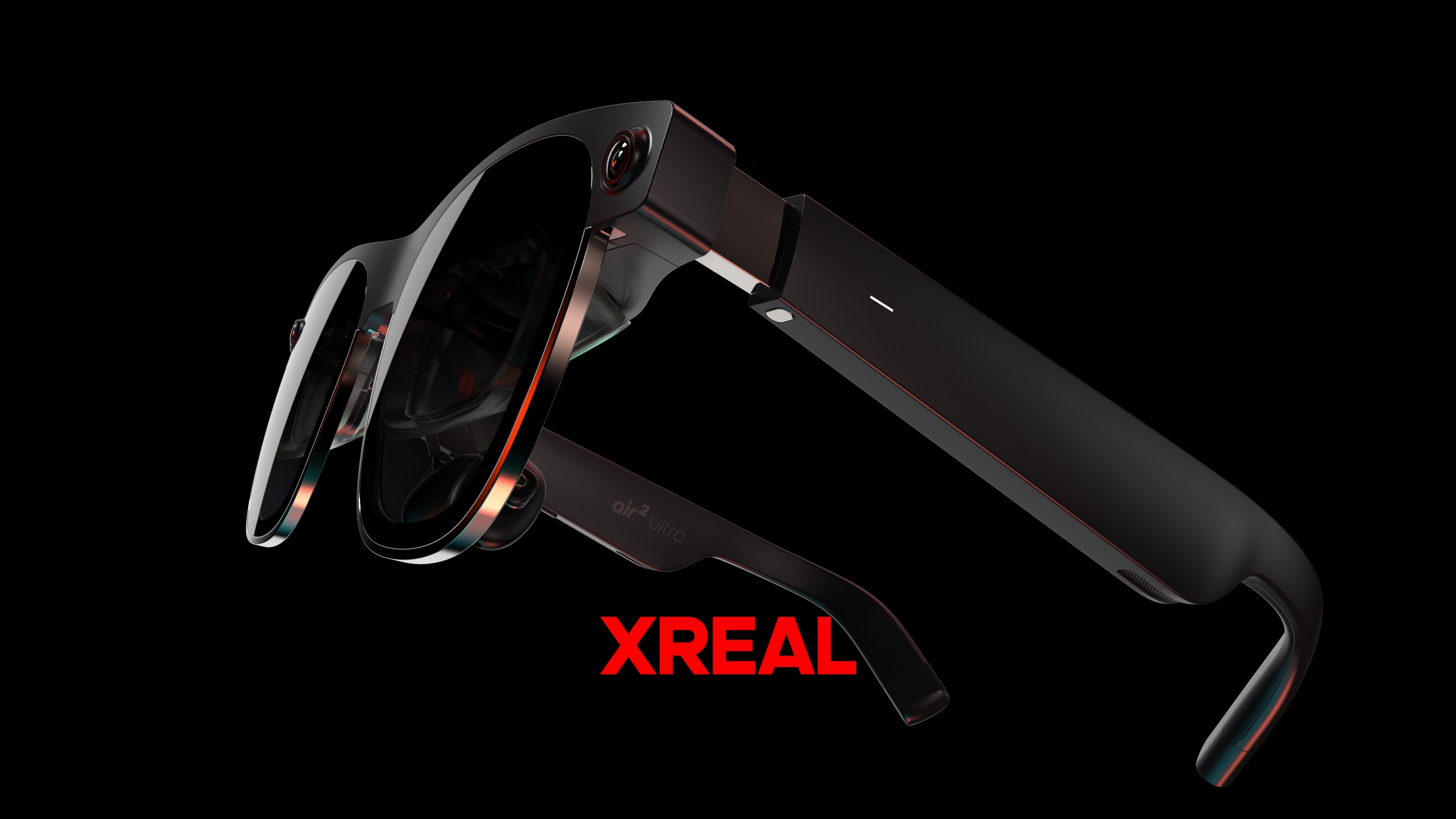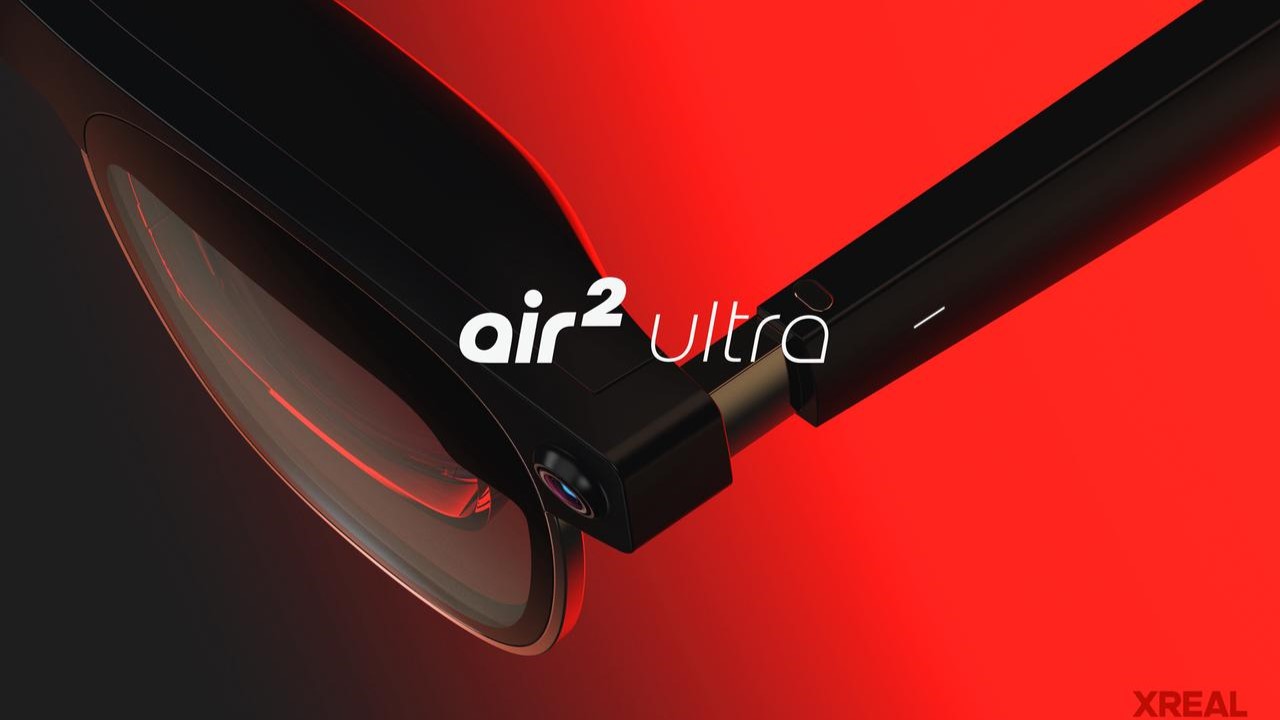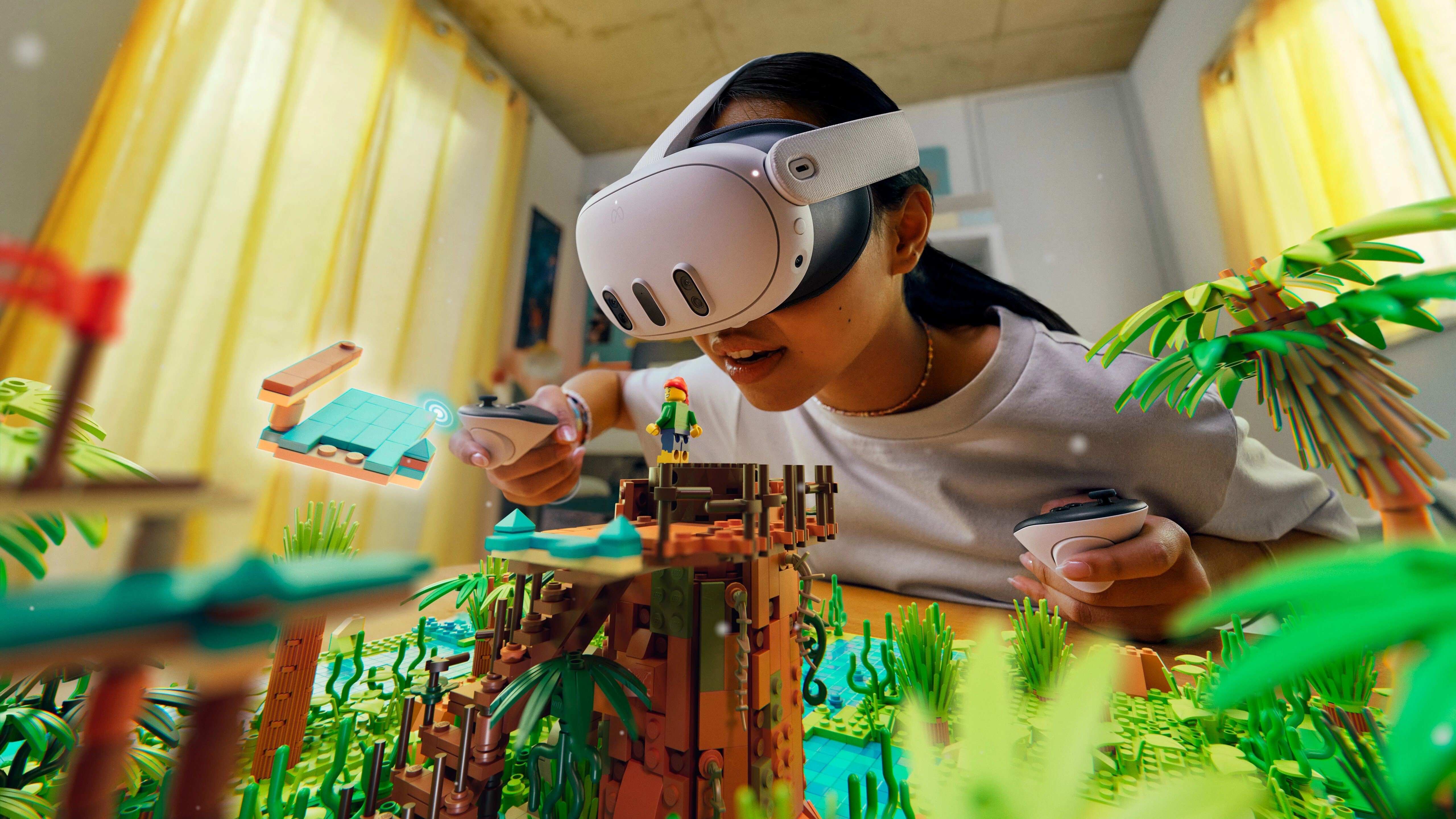
Just as Apple has officially confirmed that its Vision Pro headset will go on sale in February, Xreal has announced a spatial computing rival that’s way more affordable. Its new Xreal Air 2 Ultra AR glasses will come out in March, and will cost $699 (around £550 / AU$1,050), which is significantly less than the $3,499 Apple gadget (around £2,755 / AU$5,225).
The Xreal Air 2 Ultra launch happened at CES 2024, the massive annual tech expo in Las Vegas. The glasses are a follow-up to the AR smart specs we’ve tried in our Xreal Air review and Xreal Air 2 Pro review, with both delivering solid visuals in a comfortable-to-wear and sleek form factor. If you ask us, the Xreal Airs are the best version of this kind of smart glasses.
The new Ultra model looks set to take things up a notch with the addition of cameras – the first time Xreal has incorporated them into its Air specs. These will allow spatial computing apps to identify real-world objects that virtual elements can interact with, and will also enable hand-tracking.
Xreal has also highlighted that its specs can let you enjoy immersive 3D spatial video, just as you'll be able to on the Vision Pro – which in our experience is the most mind-blowing Vision Pro feature. To view your own recordings on the Air 2 Ultra you'll need an iPhone 15 Pro and a third-party video conversion app to turn your file into the right format; the process sounds nearly identical to the way you watch spatial video on a Meta Quest 3.

One issue we’ve previously had with the Air glasses is that they lack the ability to interact with virtual elements – they’re effectively just wearable screens. So, with the introduction of cameras, the Air 2 Ultra glasses could finally feel like true AR glasses.
Unfortunately, there’s a big catch.
Familiar faults remain
While the Xreal Air 2 Ultra is billed as an affordable alternative to the Vision Pro or Meta Quest 3, the comparison isn’t exactly accurate, as the Xreal Air 2 Ultra is not a standalone product. Much as with the other Xreal Air products, you’ll need to hook them up to a compatible gadget with a USB-C display port (meaning it can output video and audio through USB-C).
That's just for screen mirroring though. If you want a bona fide spatial computer there are just three compatible devices listed on the official store page right now: the Samsung Galaxy S22, the Samsung Galaxy S23, and a “custom computing unit” that Xreal says is on the way. The list is slightly longer if you include the other phones in Samsung’s S22 and S23 lines – the Ultra and Plus models – but still, if you have any other smartphone it looks like you’ll have to buy a new handset to get the most out of these specs.
As such, while the glasses and Samsung phone combo would still be a whole lot cheaper than the Apple Vision Pro – costing you not much more than $1,000 / $1,100 if you can find a Galaxy S22 on sale, for example with this $369.99 Galaxy S22 deal at Target – they don’t look like an affordable alternative to the $499.99 / £479.99 / AU$799.99 Meta Quest 3.

Maybe the “custom computing unit” will offer a cheaper alternative to a whole smartphone – it won’t need features like cameras after all – but the Xreal system will still cost more than a Meta headset, and it won't be as easy to use as a Quest given all those required add-ons.
What’s more, currently it’s not clear if Xreal will come close to matching the quality and range of dedicated XR software found in the Quest library (XR being a catchall for VR, AR, and MR). So you might have cool gear, but not all that much to look at or play on it.
We’ll have to try the Xreal Air 2 Ultra glasses for ourselves to get a proper sense of their capabilities. But, much as with the base Xreal Air 2, while the Ultra model is a clear leap forward it looks like it'll be let down by familiar faults.







